Dental Anxiety and Phobia in Tbilisi | Smilehub.ge
Key Takeaways:
- Dental anxiety and phobia are common issues globally, including Tbilisi, Georgia, and can prevent regular dental care.
- Ignoring dental anxiety can lead to severe oral health issues, requiring more invasive treatments.
- Various coping strategies like relaxation techniques, distraction methods, and open communication with the dentist can help manage dental anxiety.
- Treatment options like sedation dentistry and cognitive behavioral therapy can significantly alleviate dental anxiety and phobia.
- Smilehub.ge offers a comprehensive directory of dental clinics in Tbilisi, Georgia, that offer specialized services for those with dental anxiety, facilitating the connection between patients and suitable dental clinics.
The Fear of the Dentist
If the idea of visiting the dentist makes you feel uneasy, you are not alone. Dental anxiety and phobia are common problems that affect millions of people around the world.
Some individuals may feel a mild sense of discomfort or nervousness, while others may experience severe fear and anxiety that can prevent them from seeking regular dental care. In Tbilisi, dental anxiety can be an even more significant issue due to cultural beliefs about dentistry.
Many people in Georgia believe that tooth problems are just a natural part of life, and there is no need to seek professional help unless there is a severe issue. Others may feel ashamed or embarrassed about their teeth’ condition and avoid going to the dentist for fear of judgment.
The Importance of Addressing Dental Anxiety and Phobia
Ignoring dental anxiety can lead to serious consequences for oral health. Regular check-ups with a dentist are crucial for detecting oral health issues early on before they become more severe and require more invasive treatments. When left untreated, minor dental problems can turn into painful infections or even tooth loss.
Additionally, avoiding regular cleanings and check-ups due to fear or anxiety can result in unnecessary pain during treatment later on when issues have become more advanced. In extreme cases, dental phobia can lead to patients avoiding treatment altogether until it is too late.
Addressing dental anxiety is essential for maintaining optimal oral health in Tbilisi residents. Patients must find ways to manage their fears so they can receive routine dental care without unnecessary stress or discomfort.
Fortunately, many strategies exist for coping with dental phobia, including relaxation techniques like deep breathing exercises or distraction methods like listening to music during appointments. In this article, we will explore various causes of dental anxiety and phobia as well as coping strategies patients can use to manage their fears.
We will also examine how Smilehub.ge, an online dental clinic directory, can help connect patients with clinics that offer specialized services for those with dental anxiety. With the right support and care, Tbilisi residents can overcome their fears and achieve optimal oral health.
Facing the Fear: Understanding the Causes of Dental Anxiety and Phobia
Dental anxiety and phobia can be triggered by a variety of factors. Understanding these causes is an important step towards overcoming this condition. Here are some of the most common causes of dental anxiety and phobia:
Fear of Pain
For many people, the thought of experiencing pain during a dental procedure is the main source of anxiety. This fear is understandable, as no one wants to feel uncomfortable or in pain while sitting in a dentist’s chair. However, it’s important to remember that modern dentistry has come a long way in terms of pain management techniques.
From local anesthesia to sedation options, there are many ways to minimize discomfort during dental procedures. If you have a fear of pain when visiting the dentist, be sure to talk with your dentist about your concerns.
They may be able to offer different methods for managing your discomfort. For example, they may be able to apply a numbing gel before administering an injection, or they may offer nitrous oxide (also known as laughing gas) to help you relax during treatment.
Previous Negative Experiences with Dentists
Another common cause of dental anxiety and phobia is past negative experiences with dentists. If you’ve had a traumatic experience at the dentist’s office in the past – such as experiencing significant pain or feeling dismissed by your provider – it’s understandable that you might feel anxious about returning for future appointments. It’s important to remember that each dentist is unique and has their own approach to patient care.
If you’ve had negative experiences in the past, try researching new providers carefully before making an appointment. Look for reviews from patients who have had positive experiences with their care – this can give you confidence that you’ll receive compassionate treatment at your appointment.
Embarrassment About The Condition Of Teeth
People with poor dental health or cosmetic issues with their teeth may also experience anxiety or embarrassment when visiting the dentist. This fear can stem from a fear of being judged by dental professionals or feeling ashamed about the condition of your teeth.
If you’re feeling embarrassed about the state of your teeth, remember that dentists have seen it all before. They are there to help you achieve optimal oral health, regardless of what your starting point is.
Be honest with your dentist about any concerns you have regarding the appearance of your teeth or gums – they can help you develop a personalized treatment plan that addresses both functional and cosmetic issues. By understanding some of the most common causes of dental anxiety and phobia, you can take steps towards managing this condition and getting the care you need for good oral health.
Signs and Symptoms of Dental Anxiety and Phobia
Physical symptoms (sweating, rapid heartbeat, nausea)
Many people experience physical symptoms when faced with the prospect of visiting the dentist. These can include sweating, rapid heartbeat, nausea, and feeling light-headed or dizzy.
Some people also experience shaking or trembling in their hands or legs. These physical symptoms can be overwhelming, and they often make it difficult for people to take care of their dental health.
One common physical symptom of dental anxiety is a racing heart rate. When you’re anxious or afraid, your body releases adrenaline into your bloodstream, which causes your heart to beat faster.
This can lead to feelings of palpitations or chest tightness that can be very uncomfortable. Another common symptom is sweating – some people may sweat heavily during a dental appointment even if it’s not particularly warm in the room.
Avoidance behaviors (canceling appointments, not seeking treatment)
Avoidance behaviors are another common sign of dental anxiety and phobia. People who are afraid of going to the dentist may cancel appointments at the last minute or avoid making them altogether. They might also put off getting treatment for dental problems until they become severe, which can lead to more pain and discomfort down the line.
Avoiding the dentist altogether is never a good idea – regular checkups are essential for maintaining healthy teeth and gums. But if you find yourself dreading your next appointment more than usual, it’s important to speak up and let your dentist know how you’re feeling so that they can help you manage your anxiety.
In some extreme cases of dental phobia, people may avoid dentists altogether for years at a time – sometimes even going as far as pulling out their own teeth rather than seeking professional attention! If this sounds like something you’re struggling with, don’t worry – there are ways to overcome even the most severe cases of dental anxiety.
Coping Strategies for Dental Anxiety and Phobia
Relaxation Techniques: Deep Breathing, Visualization
When you feel anxious or stressed, your body’s natural “fight or flight” response kicks in. This can cause physical symptoms such as sweating, rapid heartbeat, and even nausea.
One way to combat these symptoms is through relaxation techniques like deep breathing and visualization. Deep breathing involves taking slow, deliberate breaths that focus on expanding your diaphragm.
Start by inhaling for a count of four, holding your breath for a count of four, and then exhaling for a count of four. Repeat this cycle several times until you begin to feel more relaxed.
Visualization involves creating calming mental images to distract yourself from the dental procedure. You may envision yourself on a peaceful beach or in a tranquil garden while you’re sitting in the dentist’s chair.
Distraction Techniques: Music, Watching TV during Treatment
Another coping strategy is to distract yourself from the dental procedure itself. One way to do this is by listening to music through headphones during the treatment. Choose songs that have an upbeat tempo or calming melody to help take your mind off the procedure.
If listening to music isn’t enough of a distraction, some dentists may offer TVs in their treatment rooms as well. Watching your favorite show or movie during treatment can be a great way to pass the time and keep your mind off what’s happening in your mouth.
Communication with Dentist about Fears and Concerns
Perhaps one of the most important coping strategies for dental anxiety and phobia is open communication with your dentist about your fears and concerns. Many dentists are trained in working with anxious patients and can take steps to make you feel more comfortable during the procedure. Letting them know what exactly it is that makes you nervous can help them tailor their approach to your individual needs.
Whether it’s a fear of needles or a sensitive gag reflex, your dentist can work with you to find the best solution. Dental anxiety and phobia can be managed through a variety of coping strategies.
Relaxation techniques like deep breathing and visualization, distraction techniques like music and TV, and open communication with your dentist can all help reduce anxiety and make dental procedures more manageable. Don’t be afraid to speak up about your fears – your dentist is there to help!
Treatment Options for Dental Anxiety and Phobia
Sedation Dentistry Options
For many individuals, the idea of being able to relax and undergo a dental treatment without feeling anxious or experiencing pain is an appealing prospect. This is where sedation dentistry comes into the picture.
Nitrous oxide (also known as laughing gas) and oral sedatives are two common types of sedation options available to patients. Nitrous oxide is administered through a mask placed over the patient’s nose, while oral sedatives can be taken in pill form prior to the appointment.
Nitrous oxide helps patients feel relaxed and at ease throughout their dental procedure. The effects of laughing gas wear off quickly, so it is safe for patients to drive themselves home after their appointment.
Oral sedatives, on the other hand, are prescribed by a dentist and taken prior to the appointment. The medication takes some time to kick in, so it’s recommended that patients have someone else drive them to and from their appointment.
Cognitive Behavioral Therapy
Cognitive behavioral therapy (CBT) is another option for individuals who suffer from dental anxiety or phobia. This type of therapy involves identifying negative thoughts related to dental treatments and replacing them with more positive ones. CBT also involves exposure therapy – gradually exposing patients to their fear in a controlled environment.
CBT can help individuals address underlying fears related to dental treatments that may be causing their anxiety or phobia. By working with a therapist who specializes in CBT, individuals can develop coping mechanisms that they can use during future appointments.
Combining Sedation Dentistry with CBT
Sometimes, dentists will recommend combining sedation dentistry options with cognitive behavioral therapy for maximum effectiveness in managing dental anxiety or phobia. This approach allows patients to feel relaxed during their procedure while also addressing any underlying fears they may have.
Ultimately, the best treatment option for dental anxiety or phobia will depend on the individual and their specific needs. It’s important to communicate with your dentist about any concerns you may have and work together to find a treatment approach that works best for you.
How Smilehub.ge Can Help
Listing of Dental Clinics in Tbilisi that Offer Sedation Dentistry Options
At Smilehub.ge, we understand how debilitating dental anxiety and phobia can be for many people. That’s why we’ve made it our mission to provide a comprehensive directory of dental clinics in Tbilisi that offer sedation dentistry options.
Whether you’re in need of a routine cleaning or a more complex procedure, our directory can help you find the right dentist who can accommodate your needs. Our directory includes information on several types of sedation dentistry options, including nitrous oxide and oral sedatives.
Nitrous oxide, also known as “laughing gas,” is a safe and effective way to help alleviate anxiety during dental procedures. Oral sedatives are also available for patients who require a more intense level of relaxation.
Dental Clinics in Tbilisi, Georgia
Doctors:
Elite Dent
Dental Clinic
District : Avlabari
Doctors:
Aesthetic Dentist, Dental Orthopedist, Endodontist, oral hollow Surgeon, Orthodontist, Periodontist, Therapeutic Dentist
Denton
Dental Clinic
District : Isani
Doctors:
Aesthetic Dentist, Children’s Dentist, Children’s orthopedist, Dental Orthopedist, Endodontist, Maxillofacial surgeon, oral hollow Surgeon, Orthodontist, Periodontist, Therapeutic Dentist
City Dent
Dental Clinic
District : Rustaveli Avenue
Doctors:
Dental Orthopedist, Maxillofacial surgeon, Orthodontist, Therapeutic Dentist
Jokhadze's Dental Office
Dental Clinic
District : Didi Dighomi
Doctors:
Aesthetic Dentist, Children’s Dentist, Dental Orthopedist, Endodontist, Maxillofacial surgeon, oral hollow Surgeon, Orthodontist, Periodontist, Therapeutic Dentist
Arya Clinic
Dental Clinic
District : Saburtalo
Doctors:
Aesthetic Dentist, Children’s Dentist, Children’s orthopedist, Dental Orthopedist, Endodontist, Maxillofacial surgeon, Orthodontist, Periodontist, Therapeutic Dentist
Reviews from Patients Who Have Had Positive Experiences with Managing Their Anxiety at These Clinics
We believe that the best way to ease anxious feelings about visiting the dentist is by hearing from those who have successfully managed their fears. Our directory includes reviews from real patients who have had positive experiences with managing their dental anxiety at these clinics.
These reviews cover a range of topics, including the friendliness and professionalism of the staff, the cleanliness and comfort of the facility, and most importantly, how well they were able to manage their anxiety during their visit. Reading through these reviews can help you make an informed decision about which clinic is right for you.
In addition to providing helpful information about sedation dentistry options and reviews from previous patients, Smilehub.ge offers an easy-to-use platform where you can book appointments directly with your chosen dentist. We believe that taking control of your dental health doesn’t have to be scary or stressful – let us help you find the right clinic for your needs and take the first step towards a healthier, happier smile.
Dentists In Tbilisi, Georgia
Mariam Bokuchava
District : Rustaveli Avenue
Shorena Kublashvili
District : Varketili
Ani Shanshiashvili
District : Isani
Tornike Verulashvili
District : Isani
Beka Maisuradze
District : Gldani
Nino Labadze
District : Rustaveli Avenue
Conclusion
If you suffer from dental anxiety or phobia, please do not let it prevent you from seeking the treatment you need. There are many options available to help manage your fears, including sedation dentistry and cognitive behavioral therapy. The first step is to acknowledge your fears and seek out a dentist who understands and can help.
At Smilehub.ge, we understand how difficult it can be to find a dentist who can accommodate your needs. That’s why we have compiled a list of dental clinics in Tbilisi that offer sedation dentistry options.
Our directory includes reviews from patients who have had positive experiences managing their anxiety at these clinics. We hope this resource will help make the process of finding the right dentist a little bit easier for you.
Remember that dental anxiety and phobia are common conditions, and there is no shame in experiencing them. With the right support and treatment, you can overcome your fears and take care of your oral health.
We encourage you to take action today by visiting Smilehub.ge and finding a clinic that can help you on your journey toward better dental health. Overcoming dental anxiety or phobia may take time, but it is worth it for both your physical health and emotional well-being.
Remember that there are resources available to help you manage your fears and achieve optimal oral health. You deserve a healthy smile, so don’t let fear stand in the way of achieving it!
FAQs:
- What are the common causes of dental anxiety and phobia?
- Common causes include fear of pain, past negative experiences with dentists, and embarrassment about the condition of teeth.
- What are some coping strategies for dental anxiety?
- Some coping strategies include relaxation techniques like deep breathing, distraction methods like listening to music, and open communication with your dentist about fears and concerns.
- What are the treatment options for dental anxiety and phobia?
- Treatment options include sedation dentistry options like nitrous oxide and oral sedatives, and cognitive behavioral therapy.
- How can Smilehub.ge help those with dental anxiety and phobia?
- Smilehub.ge provides a directory of dental clinics in Tbilisi, Georgia, that offer specialized services to patients with dental anxiety, including sedation dentistry options.
- How can I find a suitable dental clinic in Tbilisi for managing my dental anxiety?
- Smilehub.ge lists dental clinics in Tbilisi that offer sedation dentistry options. It also includes reviews from patients who have had positive experiences with managing their dental anxiety at these clinics.
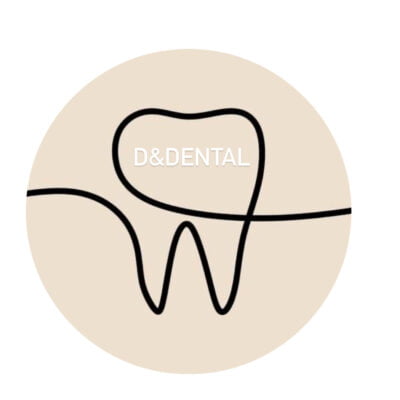

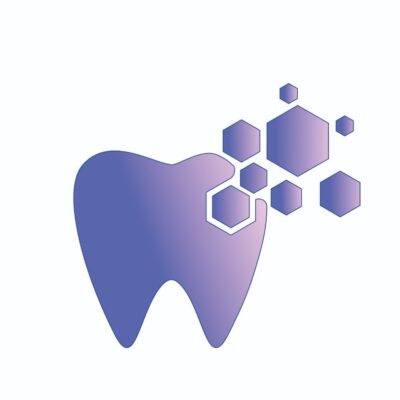
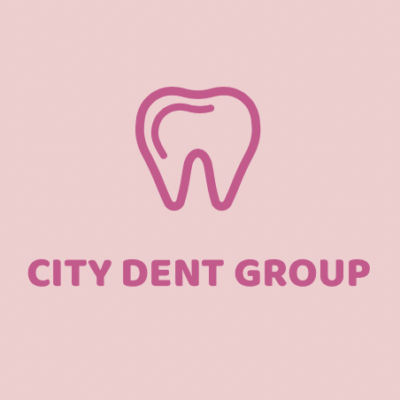
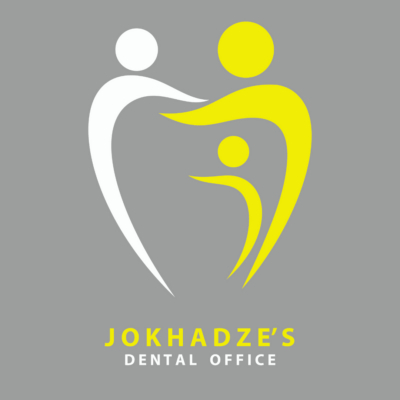





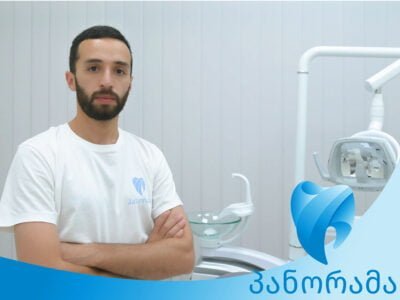

Comments
What dental clinics would you reccomend in tbilisi that completely sedate the patient
Couls you give me the most budget option?